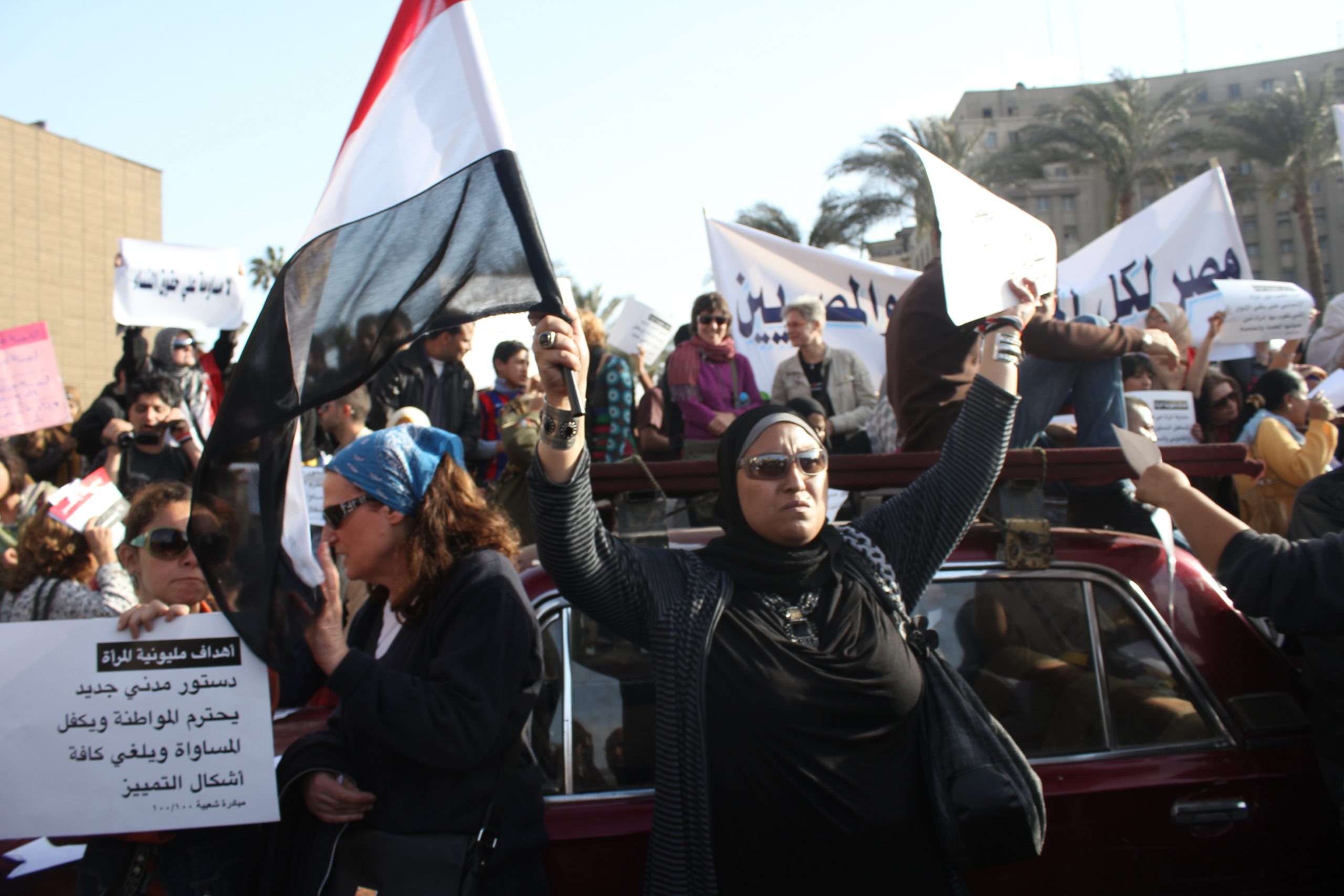
Egypt | Woman defenders face harassment, possible life imprisonment
Harassed and targeted Egyptian woman defenders Azza Soliman and Mozn Hassan face life imprisonment if their cases are brought to trial - simply for conducting legitimate human rights work. ISHR calls on the Government of Egypt to end its unjust campaign against both women and their fellow human rights defenders.
The human rights situation in Egypt is deteriorating as violence against women, torture, enforced disappearances, death sentences and arbitrary detention become increasingly common. Among all this, prominent woman human rights defenders continue to be harassed and subject to arbitrary restrictions associated with the politically-motivated ‘NGO foreign-funding case.’
The Egyptian Government has singled out Mozn Hassan, head of the non-governmental organisation Nazra for Feminist Studies (Nazra), and Azza Soliman, head of the Center for Egyptian Women’s Legal Assistance (CEWLA), for their work to promote and protect women’s rights.
Hassan and Soliman are just two targets of the Egyptian Government’s Case 173 (2011), known as the ‘NGO foreign-funding case.’ The case has so far resulted in convictions and prison sentences in June 2013 for 43 foreign and Egyptian employees of foreign NGOs[1]. On April 5 2018, the Court of Cassation accepted the appeal filed by some of the Egyptian employees and ordered a retrial of the case. Since the original convictions in 2013, it has expanded to include investigations into additional national human rights organisations, including Nazra.
Like other civil society members caught up in the case, both Hassan and Soliman received a travel ban in 2016, rendering them unable to leave the country. A 2016 report by the Cairo Institute for Human Rights Studies and the Association for Freedom of Thought and Expression found that at least 80 unconstitutional travel bans have been issued against defenders, media, and political opposition figures.
In late 2016 and early 2017, both Hassan and Soliman had their personal assets frozen, in addition to those of Nazra and Soliman’s private law firm Lawyers for Justice and Peace. Nazra is the first group registered under the Ministry of Social Solidarity to suffer such a freeze, setting a precedent for further harassment of independent Egyptian NGOs. Nazra’s staff is currently working on a volunteer basis.
In December 2016, the investigative judge for Case 173, Hisham Abdel Meguid, issued an arrest warrant for Soliman, who was released after the payment of an unprecedented and disproportionately steep fine of 20,000 EGP.
Among other irregularities in the case, Judge Abdel Meguid’s continued involvement in Case 173 is itself a violation of Article 66 of the criminal procedures code, as Egyptian law stipulates that a judge’s mandate on a particular case should not exceed 6 months, subject to renewal once. Abdel Meguid is currently on his third year of working on the case.
The charges that Soliman and Hassan may face if the proceedings go forward include the establishment of entities in violation of the NGO law, tax evasion, and receiving foreign funding to harm national security. If convicted, they could receive sentences of life imprisonment.
Hassan may also face charges of inciting ‘irresponsible liberation,’ a phrase laughably at odds with the Egyptian Government’s supposed commitment to the advancement of women’s rights.
The cases are also emblematic of a global crackdown on civil society space that extends far beyond Egypt. In 2012, Russia passed a law which requires any NGO which receives foreign funding and is engaged in loosely defined “political activities” to register as a “foreign agent,” subject to a long list of restrictions. The law has inspired a wave of anti-NGO legislation, including laws on foreign-funded NGOs in Hungary and China, a Nigerian NGO regulation bill, and Egypt’s own 2017 NGO law, which imposes harsh restrictions on civil society and essentially criminalises independent human rights work.
‘ISHR calls on the Egyptian Government to end its unjust campaign against Mozn Hassan, Azza Soliman, and their fellow human rights defenders,” said ISHR’s Pooja Patel. ‘The crackdown against defenders, who document violations and advocate for the respect of human rights, is part of a deliberate strategy to silence independent voices in the country including through the politicisation of the judiciary,’ Patel added.
Contact: Pooja Patel, [email protected]
Photo: Flickr_Aljazeera.
[1] The court also ordered the closure of the foreign NGOs: The International Republican Institute, the National Democratic Institute, Freedom House, the International Center for Journalists and the Konrad Adenauer Foundation.
